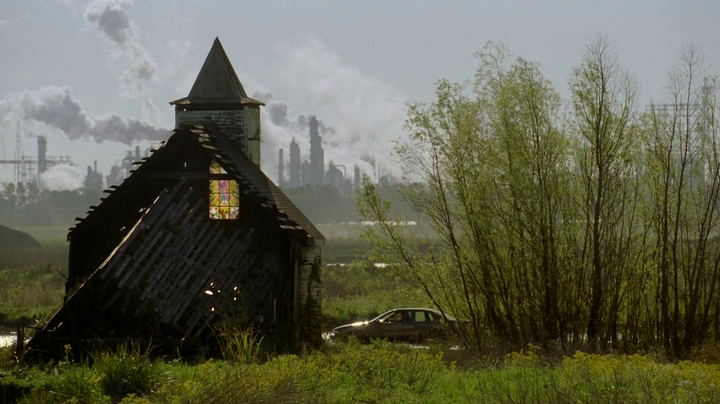True Detective: Five Ideas for Season Two

For eight weeks we've been enthralled by True Detective, the latest adult opus from HBO starring Matthew McConaughey and Woody Harrelson in a southern gothic odyssey through the murky swamps of Louisiana. The sharp writing from showrunner Nic Pizzolatto and stunning cinematography from director Cary Juji Fukunaga turned the detective drama in to one of the major TV talking points of 2014.
Whilst the storyline of sleuths Rust Cohle and Marty Hart was neatly wrapped up in the series finale, True Detective will return next year with a whole new storyline, setting and characters. An anthology serial, it's brilliant concept is that the show can reinvent itself every year in order to stay fresh and lure in Hollywood talent who would otherwise not commit to a television show. Here are five ideas that could make True Detective even better for season two.
1) Different Gender
The single biggest complaint that people have had with the show is the lack of developed female characters. In the world of True Detective, they are portrayed as either victims, nagging wives or concupiscent women of the night, and being HBO, naked female flesh adorned nearly every episode.
With a criminal lack of female protagonists in TV drama, the show should definitely opt for a female hero in the lead role next time. Pizzolatto was one of the staff writers for the US remake of The Killing, so this is not something he's unfamiliar with.
The film noir overtones of the first season was one of the main reasons why the show seemed so phallocentric, as the programme depicted a seedy world where men are weak and women are heartless. Whilst the first season was an excellent if conventional southern noir, it would be great to break genre conventions with a female lead next time.
2) Different Setting

One of the most striking elements from True Detective was how it seemed to perfectly capture the dreamlike Louisiana landscape. In Cary Juji Fukunaga's sumptuous imagery the shots of overgrown swamps, derelict churches and smoky factories were as memorable as the two lead detectives.
Growing up in the Pelican state, Pizzolatto stuck to what he was familiar with in setting the drama in such a landscape, but it would be great to see the show transfer to somewhere completely different next year. Perhaps a bustling US city to contrast with the wilderness of Louisiana (the bankrupt city of Detroit would make for a fascinating setting), or maybe take the show to another country entirely.
3) Different Crime
Whilst True Detective teased southern gothic horror and state-wide corruption, at its heart the first season was about a hunt for a serial killer; the most tired of TV plot devices.
Now that the show has attracted a loyal audience, why not have detectives investigate the less glamorous but far more important white collar crimes committed, chasing after money laundering or other forms of financial corruption?
4) Different Detectives
Rust and Marty started the show as state sleuths for the Louisiana Police Department but by the season finale they both went rogue as private investigators in order to re-open the case and catch the killer.
Private Detectives provide the story with a lot more freedom, and it would be great to see a Jake Gittes-style character from Chinatown as the protagonist for the series.
Other good alternatives would be to have detectives working in a larger US institution, i.e. the FBI or the CIA, or even the Pinkerton agents that proceeded such organisations in the late 19<sup>th and early 20<sup>th centuries.
5) Different Period
Obviously to have agents from the Pinkerton Detective Agency, you would need to set the show at least 100 years in the past. But one of the strengths of the first season was how in its fractured narrative it jumped between the murder being investigated in 1995, 2002 and 2012.
There's no reason why the show couldn't do the same again, but go back even further to a unique point in American history such as the Civil Rights Movement or the Civil War.
© Copyright IBTimes 2025. All rights reserved.






















